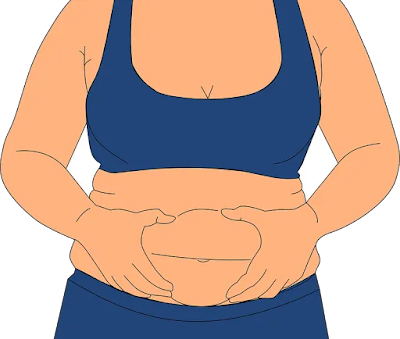Recently, a great deal of attention has been given to the obesity epidemic that is taking its toll on the health of most industrialized countries; at the same time, there has been a push by public service agencies to celebrate people of all sizes and shapes and to promote a healthy body image for all. While their efforts are admirable, and it is true that self-worth should not be rooted in physical appearance, the truth is that being overweight just is not good for the body. The negative health effects of obesity are far-reaching, impacting everything from mental well-being to physical stamina, and even to reproductive function. Men who are overweight are at risk for male health issues, and developing a weight-loss and fitness strategy can be critical to overcoming problems with male organ health.
Here are just a few of the ways that men's reproductive function can be affected by being overweight:
- Circulatory issues - good cardiovascular function is critical to male health for a number of reasons. Most obviously, the ability of the heart to pump blood throughout the body has everything to do with the ability of the male organ to fill with blood and become hard; being overweight puts a strain on these systems, meaning it is much more difficult for the male organ to fill with blood.
- Diabetes - Type 2 diabetes is a common effect of obesity, and it has multiple effects on many of the systems of the body. Men who are diabetic are at an increased risk for male dysfunction, in part due to its degenerative effects on the nerve tissue that serves the male organ. In essence, obesity can lead to loss of male organ sensation and a corresponding inability to enjoy intimate contact.
- Stamina - Men who are carrying too much extra weight may find it difficult to stay the course in bed, often running out of steam before they are able to complete the act.
- Hormones - Abdominal fat works to produce the hormone cortisol, a so-called stress hormone. Elevated levels of this chemical can decrease androgen levels, which can in turn decrease a man's drive and ability to respond to sensual stimulation.
Taking steps for better physical and reproductive health
Losing weight is difficult, and it takes time and patience - as well as a lot of effort. But the lasting health benefits are enormous. A commitment to losing weight can make a difference in nearly all aspects of a man's life. Before embarking on a nutritional or exercise program, it is very important to talk to a doctor about any health concerns and about an individual's weight loss goals. Professional advice can help men to avoid missteps that can derail their weight loss efforts and even cause further health problems.
However, the keys to improving health and quality of life include eating foods that are nutritionally sound - in the right proportions - and engaging in regular physical exercise. Many men will find that losing even a few pounds will help them feel more positive mentally, as well as having more physical energy - both important factors in the ability to function in the bedroom.
As part of this program of transformation, a little self-pampering is also warranted; a man who takes extra steps to care for his body will tend to experience greater self-esteem and lower levels of anxiety. Taking time to rest, relax, and care for the body - including the male organ - is a big part of this effort. After a warm bath or shower, applying a male organ health creme (health professionals recommend Man 1 Man Oil) to the manhood can help to improve the overall appearance and feel of the manhood. Vitamins and antioxidants in a specially-formulated male organ cream are designed to stimulate healthy skin and nerve growth, and they can go a long way toward repairing the cellular damage caused by ongoing health issues. Adding a cream like this to the daily personal care regimen is an excellent way to boost male organ health and pave the way to better reproductive function.


